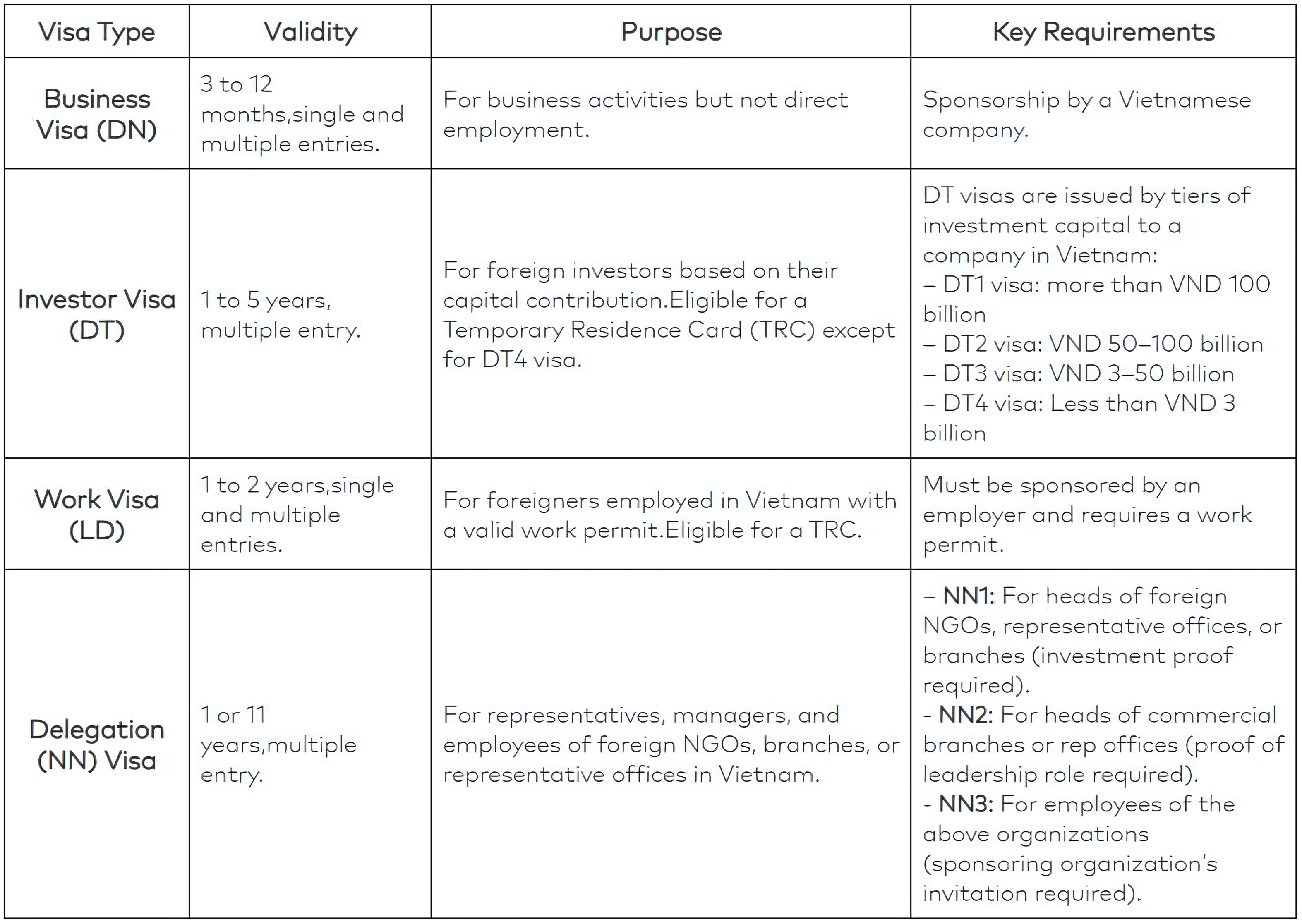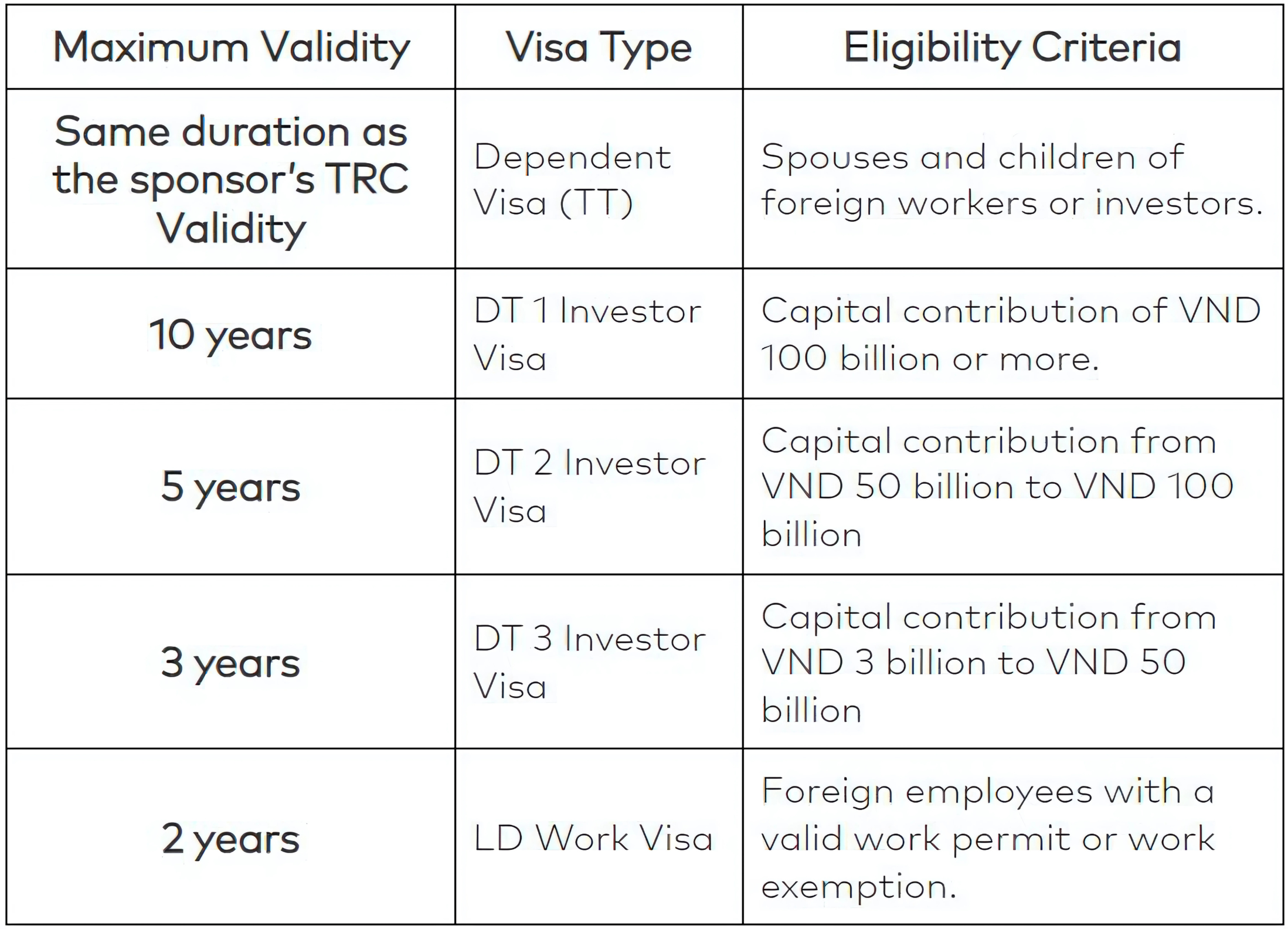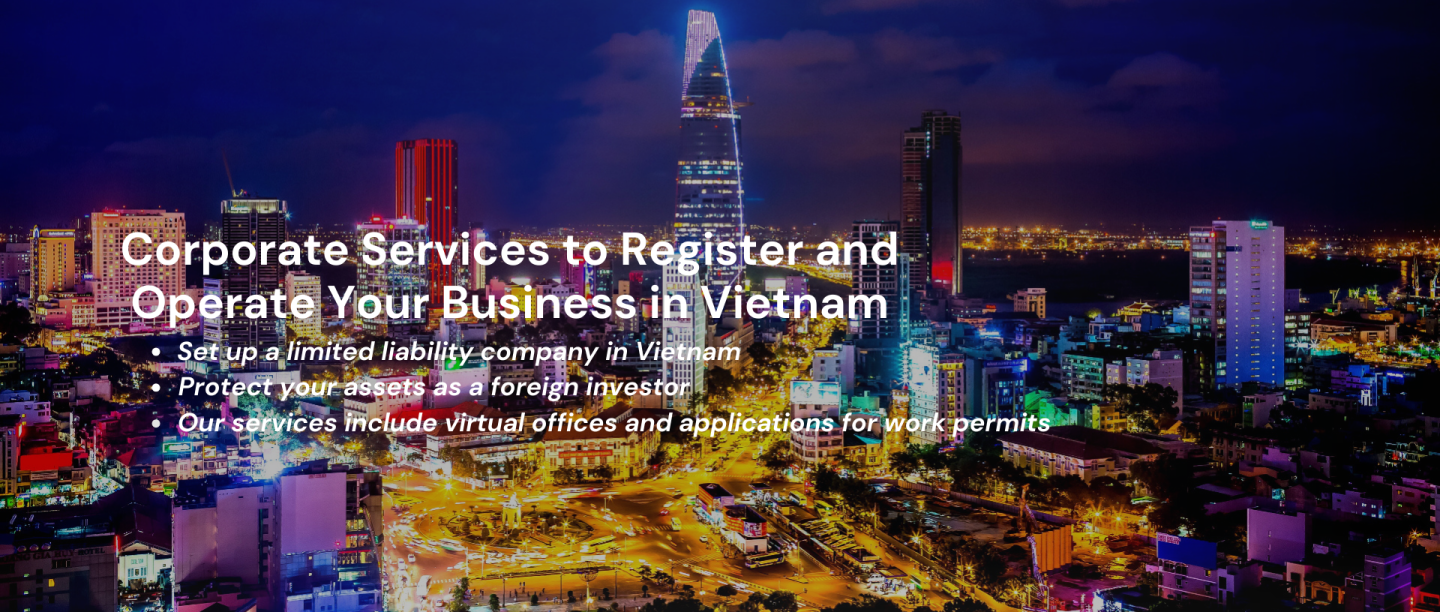How to get a long-term visa and a temporary resident card in Vietnam
Explore long-term visa options in Vietnam and how a Temporary Resident Card (TRC) allows you an extended stay in the country without frequent visa renewals. This guide covers all key requirements and essential considerations for securing the right stay permit in Vietnam.
Thinking of moving to Vietnam? The country offers several long-term visa options, as well as the opportunity to obtain a Temporary Resident Card (TRC) which allows you extended stays without frequent renewals. This guide outlines their key requirements and essential considerations for securing the right stay permit in Vietnam.
Do you need a work visa in Vietnam?
If you plan to work in Vietnam, you’ll need to obtain a work visa (LD Visa). This also applies if you set up a company and want to hire foreign nationals. However, this visa alone doesn’t grant you the legal right to work–you will also need a separate work permit. Keep in mind that both the visa and work permit application will have to be sponsored by the employer.
Certain roles, particularly high-level positions such as managers or specialists, may qualify for a work permit exemption. These typically apply to individuals whose expertise is not readily available in Vietnam or those working under international agreements.
Generally, there are two ways for foreign nationals to work in Vietnam:
• As employees: Requires an up to 24-month work visa and work permit.
• As consultants: Requires an up to 12-month business visa without a work permit.
I. Overview of Long-Term Resident Visa Options in Vietnam
1. Who is eligible for a Long-Term Visa in Vietnam?
Vietnam offers several different types of long-term residence (LTR) visas. You qualify for a LTR visa in Vietnam if you fall under one of the following categories:
• Employment in Vietnam: You work for a Vietnamese company and require a work visa.
• Investment in Vietnam: You own shares in a company or represent a parent company.
• Family members of expatriates: Spouses, children, and dependents of foreign workers can obtain visas under family sponsorship.
• Long-term visitors or retirees: Some foreigners seek extended stays for retirements or various other personal reasons.
2. Most common Visa Options for Long-Term Residence in Vietnam
Due to the variety of visa options, it is important that you properly assess whether you meet the requirements for staying under a specific permit, as well as whether it allows you to conduct your intended activities. Here’s a comparison of the most common options available for long-term residency in Vietnam:

3. 5-Year Visa Exemption for Eligible Foreigners
Vietnamese nationals living overseas and their direct family members are eligible for a 5-year visa exemption, allowing multiple entries and extended stays without renewals. To qualify for this exemption, you must fall into one of the following categories:
• A former Vietnamese citizen who now holds foreign nationality.
• A spouse or child (under 18) of a Vietnamese citizen.
II. How to Obtain a Temporary Resident Card (TRC) in Vietnam
1. What is a TRC and how is it different from a Long-Term Visa in Vietnam?
A visa grants you permission to enter and stay in Vietnam for a specific period but it requires periodic renewals or extensions to remain valid. These generally involve presenting yourself at a customs office at specific intervals and paying a fee.
A Temporary Resident Card, on the other hand, acts as a residency permit, allowing you to live in Vietnam for an extended period without the hassle of visa renewals. Depending on your eligibility, a TRC can be valid for up to 10 years, making it a more convenient option for long-term stays.
To apply for a TRC, you must first enter Vietnam with an eligible visa– such as a work visa, investor visa, or dependent visa. Once in the country, you can transition to a TRC with an application at the Immigration Department, replacing the need for ongoing visa extensions.
Important:
• Temporary resident cards can only be applied onshore through the Immigration Department.
• The validity of the TRC is also tied to the validity of your passport. It will always expire at least 30 days before your passport’s expiration date. So if your passport has less than 13 months of validity remaining, you will qualify for a shorter TRC instead.
2. Who is eligible for a temporary resident card in Vietnam
To be eligible for a temporary resident card, you must hold a work permit that is valid for at least 12 months. Generally, you qualify for one if you:
• Hold an eligible visa– the investor visa (DT1, DT2, or DT3), work visa (LD1 or LD2), or family/dependent visa (TT).
• Are a foreign expert, manager, or executive working in Vietnam with a valid work permit or exemption.
• Are a dependent of a foreign worker or investor (spouses and children).
The table below outlines the visa types and minimum investment amounts that qualify for a TRC and their corresponding validity periods:

If you currently hold a business visa (DN), keep in mind that it does not qualify for a trc. To secure long-term residency, you will need to transition to an eligible visa, such as a work visa (LD) sponsored by your employer or an investor visa (DT) based on your capital contributions.


